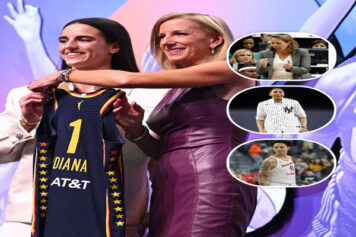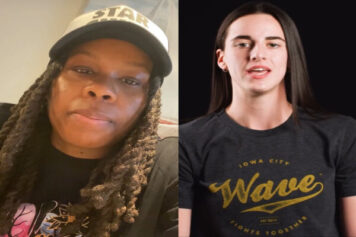Culture is the very thing that paints the fingerprints we leave upon all that we touch in the universe. As a person of African descent living in America and growing up in the 80’s, I can recall a time when films featuring predominately Black casts, and helmed by Black directors, would bring the entire community out to support in mass. I can recall with pixel-perfect precision the day that director Spike Lee urged people of African descent to treat the debut of Malcolm X as a Black national holiday. He even went so far as to urge kids to play hooky from school to see Denzel Washington transform into the man himself on the silver screen.
By the year 2000, many potential audiences of African descent seemed to take for granted that increased quality would be an automatic byproduct of the overall quantity of Black cinematic offerings. However, prior to the release of this film, an honest, well-written love story featuring a Black leading man and woman were few. Lots of ghetto remarks, lots of cooning, lots of stereotypes, but very little quality was to be found.
Over the span of my career as a working journalist there have been an untold number of instances in which practitioners of negritude inspired media have candidly mentioned the necessity of striking a delicate balance between popularity and artistic merit. It is never an easy task. Individuals wish to remain true to themselves and their vision, but also want to make a profit. Oftentimes, pursuit of a better bottom line comes at the expense of artistic quality.
This dynamic seems especially true when applied to films that purposefully project words, images and ideas that reflect the mindset of a supposed minority onto the mindscape of the greater majority. But sometimes were lucky enough to witness the perfect combination of words, ideas and culture on the big screen. This magnificent menagerie was realized in the 2000 cinematic offering Love & Basketball. Starring Omar Epps as Quincy and Sanaa Lathan as Monica, with direction from Gina Prince-Bythewood, Love & Basketball tells the story of two childhood friends who love the game of basketball and see it as a way of changing their particular realities. For Quincy (Epps), basketball is a birthright of sorts due to his father Zeke McCall (played by Dennis Haysbert), having been a star for the then San Diego Clippers of the NBA. Monica Wright (Lathan) is a huge fan of Magic Johnson and the Los Angeles Lakers who wears the number 32 in emulation of the former NBA superstar. Her road to basketball stardom is more arduous than her male counterpart. Along the way the film juxtaposes the seemingly enchanted life of a blue chip athlete with that of an aspiring star in comparing the careers of the two would be professional athletes.
While basketball plays a part in story, it is the film’s ability to capture the ups and downs of the young couple’s relationship that really draws us in. They were THE couple that many aspired to be; stars on the court and two people destined for greatness. But drama eventually rears its ugly head, as is necessary in all great films, and things take a turn for the worse for Quincy. After his Father’s affair is revealed, Quincy’s pre-destined path takes a turn for the worse at USC; he decides to leave early for the NBA, eventually tearing his ACL on a dunk for his hometown Lakers. Monica, also enrolled at USC, continues her rise on the court and ends up traveling overseas to become a star in a European women’s basketball league. Their lives, once joined together on a single path, suddenly divert, leaving us, the audience, uneasy and sad. Eventually, Quincy and Monica realize that their long-held competitiveness and pseudo animus toward one another was actually affection and misplaced jealousy. As is often the case in real life, just when they decide that it might be better for them to simply remain friends they enjoy a dual epiphany of sorts and eventually enjoy their happy ending.
The movie tapped into the emotions of both men and women, especially in the most powerful scene of the movie, when Monica challenged Quincy to a game for his heart. The actual game play didn’t even matter at that point; we all wanted to see Monica win and we sat there shocked when Quincy took off his leg brace and put his game face on. You could feel the emotions in the theater as he slammed the ball home, letting Monica know that his feelings for her were long gone. We felt her anguish, shock, embarrassment and devastation, many crying in the theater. Even guys mumbled to themselves “don’t do it Quincy. Don’t let her go.” We were begging him to go after her. It couldn’t end this way. This was supposed to be a movie with a happy ending for us, not another one of pain, sadness and disappointment.
Fortunately for all of us, the ice surrounding his heart melted and we heard a word from him that made everyone go silent, eventually leading to the three words that opened up the floodgates for the tears that poured out from the audience.
Fifteen years later, your eyes still well up at the end of that game of one-on-one. Those feelings we had in April of 2000 still remain with us each time we see the movie thanks to the greatness of Gina Prince-Bythewood.
I love love stories. I love movies that make me feel, Bythewood told The Shadow League of her affinity for love stories earlier this year while promoting her recent offering Beyond the Lights. I want to go to the movies and really feel. Not just laugh or see something thats on the surface, but make me feel. So I write what I want to see. Im just so interested in putting us up on screen, being real and authentic. Ive just been fortunate with the movies that Ive made, to be able to have the casts that Ive had to embody these characters that Ive created and make them so real. So much of it is just drawing from my personal life. Thats what leads to some of it. ‘Love and Basketball’ is half autobiographical. This has a lot of biographical things as well. So, maybe its just being able to mine my own life and put it up on the screen.
Love & Basketball is one of my favorite films for several reasons. First, it depicts Black love in an honest and innocent manner. Its not overly dramatic with some cataclysmic event forcing the characters to react, nor is it syrupy sweet and unrealistic. Nothing forced, nothing contrived. It just is. Additionally, we can think of no greater directorial debut than the one turned in by Gina Prince-Bythewood. Her ability to use basketball as a means of connection, not focal point, was unique and unexpectedly successful. But its representation of people of African descent as existing and thriving in a world outside of the ghetto was timely, necessary, greatly appreciated and most important.
This is reinforced by the fact that it was released at a time when virtually every other film directed by a Black person, and featuring a cast mostly of African descent, was about drug dealing, gangsters and bloodshed. In addition, womens basketball is rarely depicted on the big screen at all yet Love & Basketball showed it with style and grace. Ironically, a year after the movie debuted, the Los Angeles Sparks, the team on which Monica ended up playing on, won their first WNBA Championship, led by Lisa Leslie (also in a cameo appearance at the end of the movie). The movie, just like the WNBA, is still going strong, the latter experiencing its own ups and downs like Quincy and Monica.
The movie remains a true American classic 15 years after its theatrical debut. Romantic, passionate and beautiful aesthetically and thematically, Love & Basketball is always worth every quarter, every time you watch it.



